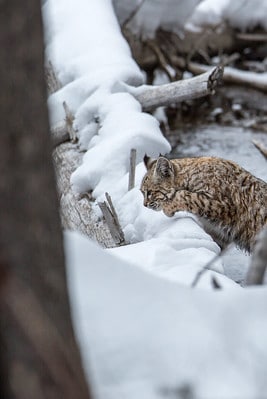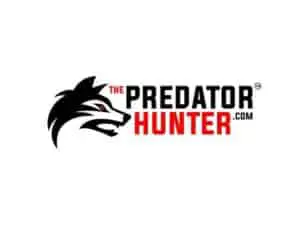Want to know the laws for hunting bobcats in Washington? This article covers many of the fundamental laws you will need to know to get started. It also provides information such as seasons, harvest limits, and required permits for bobcat hunting in Washington. It is not a legal document and is not intended to cover all hunting laws and regulations.

Purchase a Washington hunting license here.
Check out all the Washington hunting seasons.
If this is your first time hunting bobcats, please give these two articles a read.
How to read and age bobcat sign.
Three vital tips for a successful bobcat hunt.
Related: You can also hunt coyotes in this state. Learn the rules for hunting coyotes in Washington.
Related: Learn the rules for hunting fox in Washington.
General regulations for hunting bobcats in Washington.
Suppressors. When legally owned, they may be used for hunting.
Baiting. Allowed on private land and some public lands. There is a noted restriction: it is illegal to feed any wild animal when the feeding results in property damage, endangers people or wildlife, or creates a public health concern.
Related: Read this article to learn how to make the perfect bail pile.
Electronic callers. Legal for bobcat hunting. Electronic calls may be used to hunt bobcats, coyotes, crows, foxes and raccoons, but not other species. With the exception of crows, written permission of the landowner is required to hunt with electronic calls on private lands. Electronic calls may also be used on public lands (except where specifically prohibited) during periods when the use of firearms is allowed.
While electronic callers are expensive, mouth and hand callers are cheaper but harder to use.
Read this article and watch the video to learn how to use a closed reed rabbit squealer.
You can check the price for an electronic caller on Amazon.
Related: You can read about some highly effective but inexpensive ($20) decoys here.
Night hunting bobcats in Washington.
While night hunting is permitted in Washington, there are some restrictions in certain areas and at certain times.
- Night Hunting for Bobcat is prohibited in the following GMUs that fall within the Lynx management zones: 101, 105, 111, 113, 117, 203, 204, 215, 218, 224, 231, 233, 242 through 247, 250, 426 and 450 .
- It is unlawful to hunt bobcat and raccoon at night during modern firearm deer or elk general seasons that occur in October and November in eastern and western Washington.
Lights, night vision, infrared, and thermal riflescopes. All are allowed on private land. Check for public land restrictions here before hunting bobcats at night.
Related: What is the best night vision scope for a new predator hunter?
Related: How does the ATN Thor 4 thermal riflescope perform in the field?
Related: Just getting started and want to hunt with a light? Here is the best color to use when hunting predators at night.
Additional regulations for hunting bobcats in Washington.
Sealing of pelt required. Bobcat may not be hunted with dogs.
Pelt Sealing Requirements: Successful hunters/trappers must contact a WDFW office for pelt sealing and submit the associated harvest report to the department by April 20, 2022. The bobcat hide must not be frozen so a seal may be attached.
No one may possess an open WDFW bobcat seal unless it has been cut by a licensed taxidermist or fur dealer who has received and invoiced the pelt for processing.
It is unlawful to hunt bobcat with dogs. Night hunting for bobcat is prohibited in GMUs that fall within the lynx management zones identified by the department.
Can I kill a bobcat on my property in Washington?
Under RCW 77.36.030: Trapping or killing wildlife threatening human safety or causing property damage, limitations and conditions, rules:
(1) Subject to limitations and conditions established by the commission, the owner, the owner’s immediate family member, the owner’s documented employee, or a tenant of real property may trap, consistent with RCW 77.15.194, or kill wildlife that is threatening human safety or causing property damage on that property, without the licenses required under RCW 77.32.010 or authorization from the director under RCW 77.12.240.
(2) The commission shall establish the limitations and conditions of this section by rule. The rules must include:(a) Appropriate protection for threatened or endangered species;(b) Instances when verbal or written permission is required to kill wildlife;(c) Species that may be killed under this section; and(d) Requirements for the disposal of wildlife trapped or killed under this section.
(3) In establishing the limitations and conditions of this section, the commission shall take into consideration the recommendations of the Washington state wolf conservation and management plan.
Please speak with your local game warden or animal control officer before proceeding.

